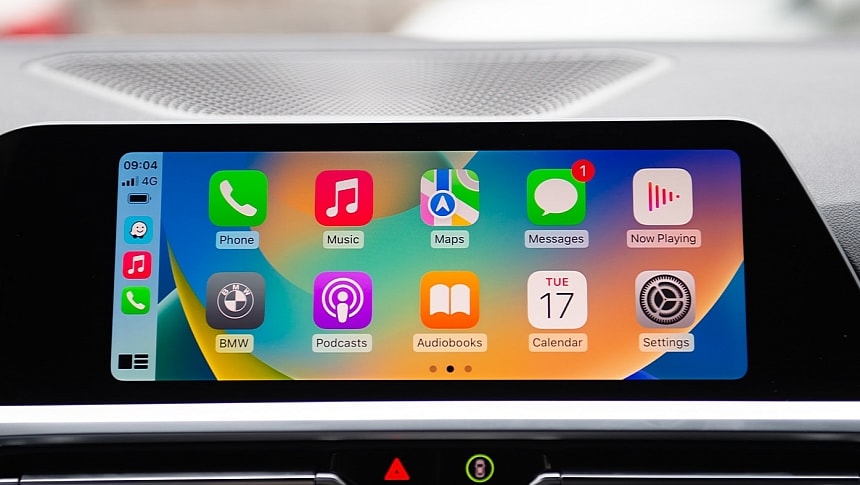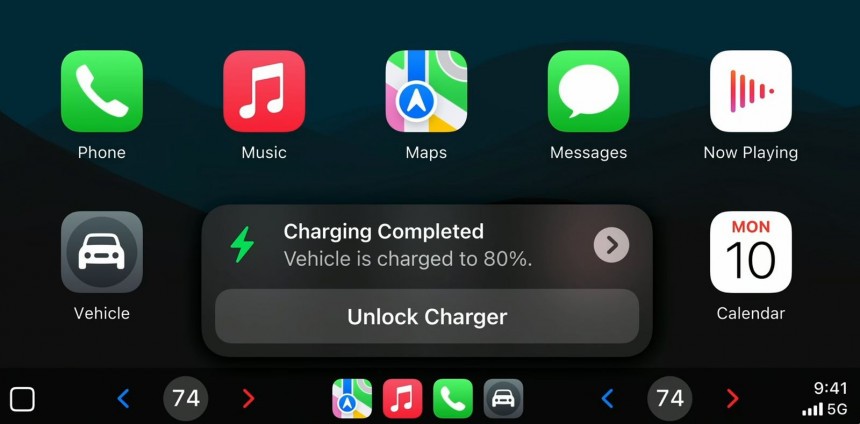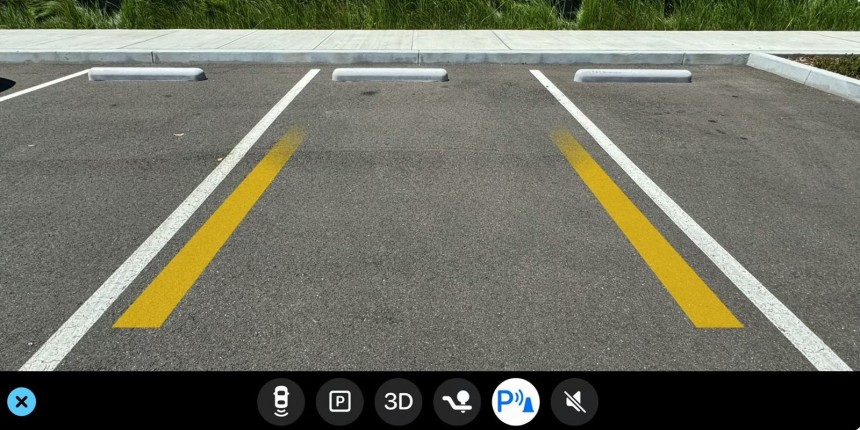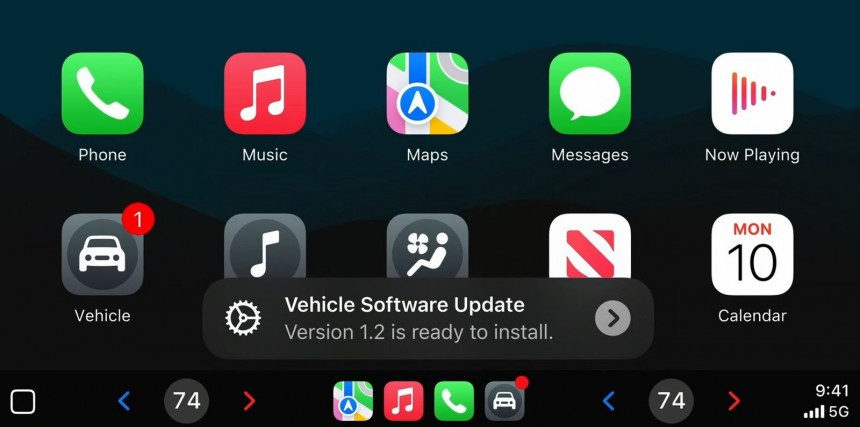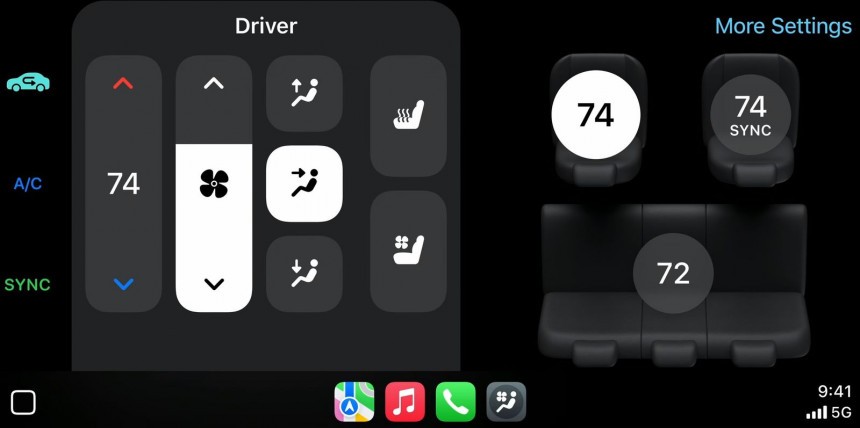The next-generation CarPlay is already on the radar (technically, it's been on the radar for more than two years now), as the first two carmakers adopting the system are projected to launch cars with the next experience by the end of 2024.
Apple sticks with its FBI-inspired secrecy and doesn't share any timing information. However, I've heard that Apple wants Aston Martin and Porsche to launch their cars in the fall, about the same time it unveils the new-generation iPhone.
The reason is simple. Apple wants to give the new CarPlay experience more stage time at the fall hardware event – the company typically unveils new iPhones and Apple Watch models in September – and inviting its first two partners to discuss its features is part of the agenda.
One of the biggest changes in the new-generation CarPlay, aside from all the upgrades and new capabilities, is the exclusive support for wireless connections.
CarPlay 2.0 won't work with a cable, and Apple's reasoning makes sense. The company wants CarPlay to fire up the moment you unlock the vehicle or open the doors, and a wireless connection is mandatory to prevent connection issues and improve long-term stability and reliability. Because CarPlay will control all screens in the car, including the instrument cluster, Apple can't afford the system to crash.
This is why many resources will still be handled by the car and run locally, while the iPhone will be in charge of non-critical assets on CarPlay 2.0.
Google avoided this shortcoming with Android Automotive by installing its operating system in the car. AAOS is not powered by a mobile device.
This exclusive focus on CarPlay wireless made many people believe that the days of CarPlay wired are already numbered. "Apple kills off CarPlay wired." That's what so many people have said lately, claiming that switching to wireless for the new-generation experience is a sign that cables will no longer make sense in an Apple-powered car.
That is simply not true.
It all comes down to this statement: the debut of the new-generation CarPlay doesn't mean the current iteration gets the axe. Not at all.
The two CarPlay versions will continue to co-exist so they will be offered simultaneously in the automotive space. Apple won't provide CarPlay 2.0 as an upgrade to the current version that we all have, and the new experience will only be available in new-generation models. You won't be able to install CarPlay 2.0 in a car fitted from the factory with the current version because it'll require new hardware.
Because Apple will continue to offer and maintain both versions of CarPlay, users can continue running the app with the connection mode available in their vehicles. If you already run CarPlay with a cable in your car, that's fine, Apple won't change anything for you with the debut of CarPlay 2.0.
Apple is no stranger to big bets on wireless. Not long ago, people familiar with the matter revealed that Apple was working on a portless iPhone. This strategy was adopted as a way to sidestep the EU's requirement to ditch the Lightning port on an iPhone and install USB-C. Many believed this was also the end of CarPlay wireless, but Apple eventually dropped the idea and adopted USB-C on the iPhone 15.
Apple won't kill CarPlay wired, and – this is just an assumption – this connectivity option will still make its way to new models. While more manufacturers have adopted the wireless mode, CarPlay wired will continue to be offered as a more affordable alternative. It's typically available in low-budget models, as installing CarPlay wired costs less than a wireless connection from a carmaker's perspective.
Many people are afraid that Apple could eventually attempt to kill off CarPlay wired once the transition to the new version gains traction, and it becomes the prevalent option on the road. While it's hard to anticipate what'll happen in 20 or 30 years, cables will probably no longer make sense at that point – and most cars currently on the road will already be obsolete.
For now, CarPlay wired is here to stay, and the debut of the exclusively wireless CarPlay 2.0 won't change anything for you if you rely on a cable to run the app in your vehicle. The new-generation experience won't change anything for CarPlay wireless users either, as it has nothing in common with the phone mirroring system available in our cars today. It'll be a separate offering pre-loaded with the vehicle from the factory – it's why Apple is working directly with every carmaker to install the system in their cars, giving each company the freedom to customize the look and feel of the system.
My only big concern is that the current CarPlay version will receive less love in the long term. It already barely gets improvements, as it's still tied to iOS updates, but once CarPlay 2.0 goes live, I expect Apple to gradually increase its focus on the upgraded experience, leaving the current version mostly untouched.
The reason is simple. Apple wants to give the new CarPlay experience more stage time at the fall hardware event – the company typically unveils new iPhones and Apple Watch models in September – and inviting its first two partners to discuss its features is part of the agenda.
One of the biggest changes in the new-generation CarPlay, aside from all the upgrades and new capabilities, is the exclusive support for wireless connections.
This is why many resources will still be handled by the car and run locally, while the iPhone will be in charge of non-critical assets on CarPlay 2.0.
Google avoided this shortcoming with Android Automotive by installing its operating system in the car. AAOS is not powered by a mobile device.
This exclusive focus on CarPlay wireless made many people believe that the days of CarPlay wired are already numbered. "Apple kills off CarPlay wired." That's what so many people have said lately, claiming that switching to wireless for the new-generation experience is a sign that cables will no longer make sense in an Apple-powered car.
It all comes down to this statement: the debut of the new-generation CarPlay doesn't mean the current iteration gets the axe. Not at all.
The two CarPlay versions will continue to co-exist so they will be offered simultaneously in the automotive space. Apple won't provide CarPlay 2.0 as an upgrade to the current version that we all have, and the new experience will only be available in new-generation models. You won't be able to install CarPlay 2.0 in a car fitted from the factory with the current version because it'll require new hardware.
Because Apple will continue to offer and maintain both versions of CarPlay, users can continue running the app with the connection mode available in their vehicles. If you already run CarPlay with a cable in your car, that's fine, Apple won't change anything for you with the debut of CarPlay 2.0.
Apple won't kill CarPlay wired, and – this is just an assumption – this connectivity option will still make its way to new models. While more manufacturers have adopted the wireless mode, CarPlay wired will continue to be offered as a more affordable alternative. It's typically available in low-budget models, as installing CarPlay wired costs less than a wireless connection from a carmaker's perspective.
Many people are afraid that Apple could eventually attempt to kill off CarPlay wired once the transition to the new version gains traction, and it becomes the prevalent option on the road. While it's hard to anticipate what'll happen in 20 or 30 years, cables will probably no longer make sense at that point – and most cars currently on the road will already be obsolete.
My only big concern is that the current CarPlay version will receive less love in the long term. It already barely gets improvements, as it's still tied to iOS updates, but once CarPlay 2.0 goes live, I expect Apple to gradually increase its focus on the upgraded experience, leaving the current version mostly untouched.
